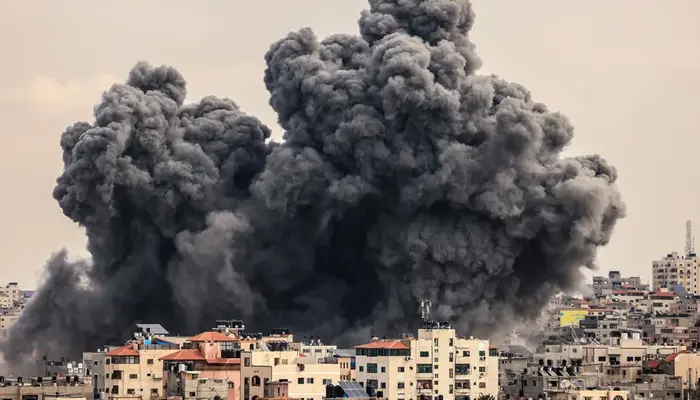Israeli attacks have intensified in Gaza and Lebanon, leaving dozens dead and pushing ceasefire efforts to a critical impasse. According to Gaza’s Health Ministry, Israeli strikes killed at least 55 people across Gaza within 24 hours, targeting crowded areas, including a school-turned-shelter for displaced Palestinians in Nuseirat refugee camp. As the violence spreads, the call for a ceasefire grows louder, yet a diplomatic solution remains elusive.
Gaza Strikes Target Civilian Areas
In Gaza, strikes by Israeli forces have claimed dozens of lives, with Nuseirat bearing the brunt of the attack. Bombs hit several homes, killing 47 people, many of them women and children. Tragedy compounded when rescuers, responding to survivors trapped beneath rubble, were struck by a second round of bombings. The ongoing bombardment has severely impacted central and northern Gaza, as hospitals struggle to treat casualties. Medical officials report that people are transported in animal-drawn carts due to Israeli drones impeding emergency vehicles.
Widespread Impact and Civilian Crisis
Attacks in Khan Younis and Gaza City have amplified the crisis, with reports of continuous strikes blocking humanitarian aid routes. The lack of resources is devastating, particularly in northern Gaza, where the United Nations has declared the situation “apocalyptic.” Civilian casualties mount as essential services falter under bombardment, with even hospitals targeted. Kamal Adwan Hospital’s medicine storage and oxygen facilities were hit, leading to the deaths of two children in intensive care.
UN agencies have warned of famine, disease, and violence as Gaza faces an overwhelming humanitarian catastrophe. With more than 43,000 people dead and over 100,000 wounded since the conflict began, Gaza’s health and emergency services remain overwhelmed.
Lebanon Struck Amid Regional Tensions
Israel has also expanded its offensive into Lebanon, particularly in Baalbek, where Israeli strikes killed 41 people. The strikes have targeted historic cities, including Tyre and Baalbek, as well as residential areas in Beirut’s southern suburbs. Forced evacuations have turned these regions into de facto war zones, with the UN warning of a cultural loss as ancient cities face destruction. Lebanese caretaker Prime Minister Najib Mikati condemned the attacks as “war crimes” and has reached out to international partners for ceasefire support, though progress has been slow.
Read: UN Warns of ‘Apocalyptic’ Conditions in Gaza, Appeals to Israel
Humanitarian Efforts Hampered
The escalating violence has put emergency responders at risk. Israeli strikes have targeted paramedics, with six medics killed in just three hours on Thursday. Since the start of the aggression, 178 paramedics have died, and nearly 250 emergency vehicles have been destroyed. The systematic targeting of rescue operations has left humanitarian efforts struggling to keep pace with the crisis, both in Gaza and Lebanon.
Ceasefire Hopes Dwindle
Lebanese and U.S. officials initially expressed optimism about a ceasefire, but diplomatic efforts have yet to yield results. Prime Minister Mikati warned that Israel’s aggressive approach undermines negotiations. Israel has demanded that Hezbollah withdraw from southern Lebanon and disarm, while Lebanon resists these conditions, calling for an immediate halt to hostilities.
As tensions continue to rise, the humanitarian toll and destruction underscore the urgent need for a ceasefire, yet a resolution remains out of reach.
Follow us on Google News, Instagram, YouTube, Facebook,Whats App, and TikTok for latest updates
